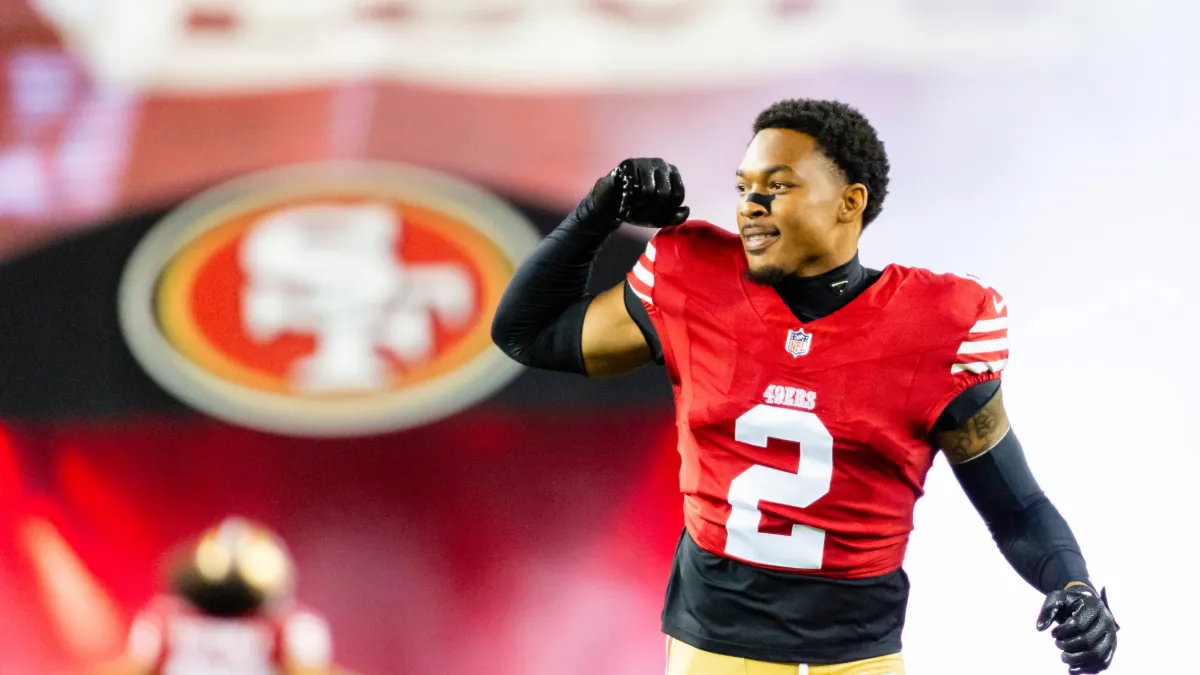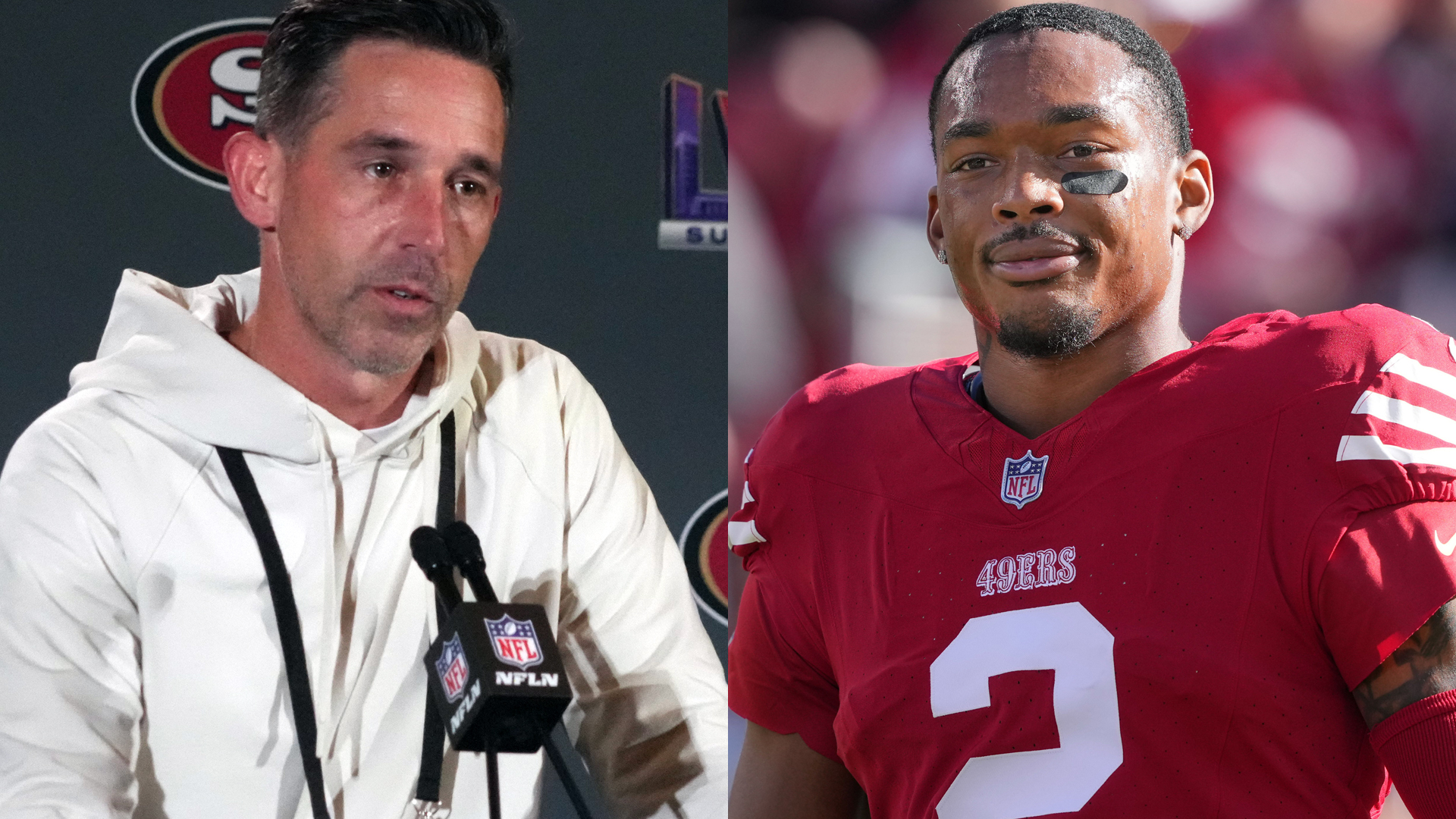In the end, Reuben Foster’s demons were more powerful than his choices, and he beat a woman one last time as a football player.
Foster was released by the San Francisco 49ers after being arrested in Tampa on charges of beating his on-again off-again girlfriend Elissa Ennis one more time. No concerns about “letting the process play itself out,” or making ultimatums that had more to do with their belief in Foster's usefulness as a football player than his behavior. The 49ers' talent/tolerance scale just shifted.
But the idea that he left the 49ers no choice but to fire him isn’t really accurate. They made a choice when he was charged with beating Ennis once before that they would let the legal process be their guide, and they made a new choice Sunday, based on his choice to re-engage with the woman who charged him with domestic abuse earlier this year.
With our All Access Daily newsletter, stay in the game with the latest updates on your beloved Bay Area and California sports teams!
She recanted her story from the February incident, and the 49ers looked wise and judicious to those who wanted them to look that way. They also looked cynical and opportunistic to those who wanted them to look that way. Either way, they bet on Foster’s talent in hopes that it would overpower his issues with Ennis, and they proved to be spectacularly wrong.
Herein lies the conundrum: There still is no agreement on just what the 49ers should have done, or what they should do when the next Reuben Foster comes along. They wanted it both ways with him because they needed his best linebacking more than they needed to stand on their own stated principles, and they ended up getting neither.
This is the problem with saying one thing and doing another, the problem with the talent/tolerance scale. By trying to present themselves as a zero-tolerance company while tolerating Foster was an untenable position to maintain, relying on Foster’s ability to stay free of entanglements caused by his temper to help them thread that particular needle, put them in the position they are in today -- explaining in the face of all the evidence why there was nothing they could do.
There were things the 49ers could do, and they chose the path that helped their immediate problem the most. They took domestic violence and made it a football issue, because football is what they know and football is what they do.
San Francisco 49ers
Find the latest San Francisco 49ers news, highlights, analysis and more with NBC Sports Bay Area and California.
And what is more, they almost certainly will make the same choice again because their real policy on domestic violence is “Well, it depends on how much we need the perpetrator’s skills.” It is the same policy most sports organizations, and most corporations around the world, have -- what helps us more, the work product or the progressive attitude?
And because the work product can be quantified and the progressive view often can’t, the choice almost makes itself.
And this isn’t just a Kyle Shanahan choice or a John Lynch choice. It’s a Jed York choice, and he decided that he could not or would not be a clearer head on Foster than Shanahan or Lynch. Coaches always think they can redeem even the most troubled player as long as that player is worth the bother, and owners are fine with anything that doesn’t bounce back toward them. These are parallel tracks in problem-solving, but they are not the same track.
This usually is a failed strategy because domestic violence is a much more complicated issue then “keep him as long as he can play,” or even “just get rid of him.” The 49ers’ failure here is that they viewed Foster’s psyche in their terms, and the football department’s terms and the owner’s terms aren’t exactly in lockstep. The decision to cut him wasn’t therapeutic or socially responsible as much as it was, “We’re fed up, plus he wasn’t playing that well.”
Foster needs more help than the 49ers are interested in providing, which is their choice. The 49ers need more than Foster is in a position to provide, either on the field on in his personal life, which is his choice. How this ends for him and Ennis, or for him alone, is anyone’s guess.
But to say the 49ers had no choice is wrong. They made the wrong choice, as they repeatedly have when the issue of domestic violence arises. They want the football part of the business to have a role in something that isn’t football because football people believe their sport also cures social ills. It doesn’t. It can provide financial and public support to address those social ills, but it fixes nothing and therefore should be superseded by less granular decision-makers.
In other words, this ultimately is Jed York’s choice most of all, and he has to be strong enough to make the football people understand that. He has not, and the betting is he won’t because he too believes in the failed strategy of talent/tolerance.
And he always will because it’s the safest and easiest choice for them.




